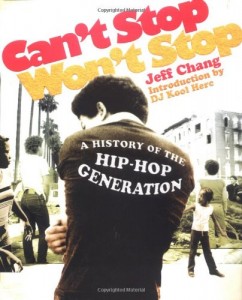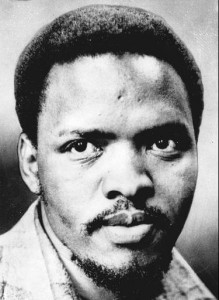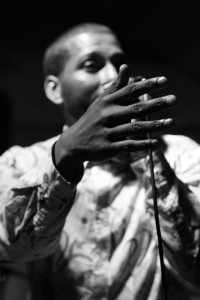 In under 500 pages, Jeff Chang has managed to give a detailed, fascinating and relevant history of hip-hop culture, covering almost every important aspect: the social conditions that gave rise to it, the stories of the people and communities that pioneered it and moved it forward, its transformation from a primarily party-oriented movement to a culture of resistance, its re-transformation to a culture of individualism and consumerism, and a peek into its future.
In under 500 pages, Jeff Chang has managed to give a detailed, fascinating and relevant history of hip-hop culture, covering almost every important aspect: the social conditions that gave rise to it, the stories of the people and communities that pioneered it and moved it forward, its transformation from a primarily party-oriented movement to a culture of resistance, its re-transformation to a culture of individualism and consumerism, and a peek into its future.
While many (probably hundreds) of books have been written about the history and sociology of hip-hop and the people who listen to it, I can’t think of any that cover quite as much material as “Can’t Stop Won’t Stop”, and there are very few written in an accessible style. Jeff Chang combines the detailed knowledge and big picture understanding of the academic world with the passion and politics of the street (fittingly, he describes his location as “Brooklyn and Berkeley” (Berkeley is a university in California with a reputation for student activism)).
Chang devotes the first few chapters to exploring the social conditions prevailing in New York, particularly the South Bronx, in the years leading up to the birth of hip-hop. In many ways, although it is not directly about hip-hop, this is the most important section of the book, as this history gives some important clues as to what makes hip-hop so special, so important.
Chang describes one of the most crucial events that shaped the early hip-hop generation: the construction of the Cross-Bronx Expressway, between 1948 and 1972. This single road, designed to decrease travel times for rich suburban commuters, forced the relocation of some 60,000 working class Bronx residents. While many white residents “moved north to the wide-open spaces of Westchester County or the northeastern reaches of Bronx County”, the majority of African and Latino residents had little choice but to move to the South Bronx, where there was a boom in social housing but a near-total lack of jobs.
The South Bronx was a place of rapid economic deterioration, having lost 600,000 manufacturing jobs in the late 60s and early 70s. Youth unemployment was said to be around 80%. “If blues culture had developed under the conditions of oppressive, forced labor, hip-hop culture would arise from the conditions of no work.”
Chang gives vivid descriptions of the social degeneration that followed the economic degeneration, as the most prominent face of the South Bronx became the gangs, the slum landlords, the insurance scam fires, the race tensions, and the drugs. The social policy response from the government was, basically, to ignore the ghetto, to pretend it didn’t exist. With the black power movement of the late 60s and early 70s defeated for the time-being, the state shut down the social programmes and replaced them with the fiction of ‘trickle down’ economics.
Gang life had become a central feature of many young people’s lives in the Bronx. “When African-American, Afro-Caribbean and Latino families moved into formerly Jewish, Irish and Italian neighborhoods, white youth gangs preyed on the new arrivals in schoolyard beatdowns and running street battles. The Black and brown youths formed gangs, first in self-defense, then sometimes for power, sometimes for kicks.”
Back in those days at least, the gangs and the major movements for political change were not a million miles apart. The Black Panthers, for example, had taken some important steps towards turning gangs away from the path of self-destruction and towards the path of revolution.
Chang writes that, in Chicago, legendary Black Panther Fred Hampton (who was murdered in his sleep by police in an unprovoked raid on his home) was “forming alliances with the powerful Blackstone Rangers, Mau Maus, and the Black Disciples gangs. He believed that the gangs collected the fearful and the forgotten. If gangs gave up robbing he poor, terrorizing the weak, hurting the innocent, they might become a powerful force for the revolution.”
In New York, the Puerto Rican revolutionary group The Young Lords had started as a street gang and had transformed themselves into an organisation for helping the community. They also had a powerful effect on the South Bronx gangs, especially when the gangs and the revolutionary groups discovered a shared enemy: police.
As the gangs found common ground in their opposition to police, to heroin dealers and junkies, and to poor social provision in their neighbourhood, a new era of unity started to emerge. It became suddenly possible for kids from different blocks, different gangs and different races to mix. All were drawn to the emerging block party scene, where young DJs like Kool Herc – generally considered to be the creator of the hip-hop movement – were making their names, putting on big parties much influenced by Jamaica’s sound system culture (which Herc, a first generation Jamaican immigrant, had grown up with).
The mix of African-American, Puerto Rican and Caribbean youth cultures – strangely vitalised by poverty, awash with rebelliousness, heavily inspired by Black Power and Puerto Rican socialist movements, in this North American cultural capital that had given birth to swing, be-bop, disco, Marcus Garvey and Malcolm X – was explosive. Impoverished young people, struggling to survive in a deprived area that the world had chosen to ignore, gave birth to a culture of music, dance (breakdancing) and art (graffiti) which the world couldn’t ignore, and which it eventually would have no choice but to adopt.
Saying something
Having written about the social origins of hip-hop, the early innovators such as Kool Herc, Grandmaster Flash and Afrika Bambaataa, the emergence of graffiti, the emergence of breakdancing, and other important topics related to the ‘early years’, Chang turns his attention to the emergence of ‘political rap’.
Hip-hop had originally emerged as a party movement. It wasn’t overtly political, although it was implicitly political in that: 1) it brought young people from diverse impoverished communities together and gave them a way out of a culture of self-destruction; 2) it gave a powerful voice to oppressed people who weren’t supposed to have a voice.
However, by the time the mid-80s rolled around, there was no escaping politics. Reaganomics – the set of anti-poor economic policies associated with the Reagan government – was in full effect, and social welfare budgets were being cut left, right and centre. The gap between rich and poor, and between people of colour and whites, was growing at an incredible rate, as was the prison population. US foreign policy needs (principally their desire to give financial support to the fascistic Contra movement in Nicaragua) had created the conditions for the rapid and devastating spread of crack cocaine in the black ghettoes of Los Angeles and elsewhere (“Nearly half of America’s largest cities is one-quarter black; that’s why they gave Ricky Ross all the crack”, says Mos Def in his classic ‘Mathematics’).
Now that the poorest sections of the population in urban US had a voice, it was natural to use it to decry the corporate/government attack on their communities, especially when the older generation of black radical politics – the civil rights and black power movements – had gone quiet (or had been ‘quieted’). “In the new crisis time, as it had been for Jamaica’s embattled roots generation, rappers were increasingly being recognised as ‘the voices of their generation.’ The centre of the rap world swung decidedly in a radical direction. Hip-hop culture realigned itself and re-imagined its roots, representing itself now as a rap thing, a serious thing, a Black thing.”
Chang gives a detailed coverage of the emergence of Public Enemy – without a doubt the best-known and most important political rap crew in history (I’ll write more about them when I review Russell Myrie’s biography of PE, ‘Don’t Rhyme for the Sake of Riddlin’). He also points out some of the major milestones in late 80s and early 90s political rap, such as Run DMC’s performance at the Columbia University campus protest against apartheid, and KRS One’s co-ordination of the Stop the Violence Movement.
For many long-time hip-hop fans, that period of a few years when political rap was thriving is considered the ‘golden era’. Here was a vibrant, rebellious youth culture that spoke to the needs of working class and oppressed people everywhere.
The backlash didn’t take long to arrive. Upset by the pro-poor, pro-black lyrics of Public Enemy (and particularly their pro-Palestinian stance), mainstream journalists whipped up a frenzy of opposition to Public Enemy and other Afrocentric and black nationalist artists, labelling them as racist and anti-semitic. When certain comments made by Public Enemy’s Professor Griff regarding the Palestinian intifada were deemed to be anti-semitic, a national storm was created and numerous calls were raised for a boycott of Public Enemy’s music (what Griff actually said is still disputed, and this issue will be covered in depth in a future post).
Artist interviews were misquoted, lyrics were taken out of context, and rappers were demonised. The threat of boycott became a major establishment weapon. The big players in the music industry (still very much controlled by the old, rich, exclusively white corporates) got the message loud and clear: hip-hop could be exploited for financial gain, but it was not to be a platform for radical politics. After all, the FBI didn’t pursue its elaborate, expensive and murderous COINTELPRO operation just so that black and working class power could re-emerge in the form of rap music.
Funding and support for radical music disappeared, and the big deals started going to those willing to promote misogyny and black-on-black violence. While quick to point out that ‘gangsta’ rap is not a simple phenomenon and that many artists are highly contradictory (Jay-Z, for example, although considered as a misogynistic and ultra-consumerist artist, has made tracks opposing police brutality), Chang points out the sea change that occurred in rap music. Even NWA’s lyrics, although problematic in many ways, had a critical seed of rebelliousness; but by the time Dr Dre’s landmark ‘Chronic’ album landed in late 1992, it seemed like the time for “guiltless, gentrified gangsta” had arrived. “No Peace Treaties, rebuilding demands, or calls for reparations, just the party and the bullshit. The video for ‘G Thang’ seemed to ask: didn’t all boys everywhere just want to bounce in hot cars to hotter beats, hang out with their crew, party all night, and spray conceited bitches with malt liquor?”
The content swing within hip-hop reached a point where, “by the turn of the century, to be labelled a ‘conscious’ or ‘political’ rapper by the music industry was to be condemned to preach to a very small choir.”
Where to go from here?
Having given a brilliant description of the hip-hop generation, charting its highs and lows, Chang resists the temptation to give a prescription as to what needs to happen for hip-hop to regain its radical essence. Instead, he concludes his book with several important examples of grassroots activists from the hip-hop generation using the music and cultural imagery of hip-hop to positive effect in their communities. This at least gives a hint as to how Chang sees hip-hop heads re-developing music as a weapon.
In his introduction to the book, Kool Herc is less humble about making demands of today’s hip-hop artists and fans. Noting that “hip-hop is the voice of this generation”, Herc also points out that this is a role that comes with responsibility, a responsibility that many leading hip-hop artists are not taking seriously. “The hip-hop generation is not making the best use of the recognition and power that it has… We have the power to [change things]. If Jay-Z comes out one day with his shirt hanging this way or LL Cool J comes out with one leg of his pants rolled up, the next day everyone is doing the same thing. If we decide one day to say that we’re not gonna kill somebody senselessly, everyone will follow…
“I don’t want to hear [rappers] saying that they don’t want to be role models. You might already have my son’s attention. Let’s get that clear. When I’m telling him, ‘Don’t walk that way, don’t talk that way,’ you’re walking that way and talking that way. Don’t just be like a drug dealer, like another pusher. Cut the crap. That’s escape. That’s the easy way out. You have the kid’s attention. I’m asking you to help me raise him up.”
For Herc, it’s all about people within hip-hop taking responsibility and working to address the issues faced by their communities. “East, west, north or south – we come from one coast and that coast was Africa. This culture was born in the ghetto. We were born here to die. We’re surviving now, but we’re not yet rising up. If we’ve got a problem, we’ve got to correct it. We can’t be hypocrites. That’s what I hope the hip-hop generation can do, to take us all to the next level by always reminding us: It ain’t about keeping it real, it’s about keeping it right.”
If you love hip-hop, you should pick up a copy of Can’t Stop Won’t Stop. It’s a beautiful book.
 Today is the 33rd anniversary of the murder of Stephen Biko at the hands of apartheid police in South Africa. Although only 30 years old at the time of his death, Biko had become one of the leading intellectuals and activists of the anti-apartheid movement. A talented organiser, a sharp mind, a courageous heart and a passionate revolutionary, he is one of the most important martyrs of the struggle against apartheid.
Today is the 33rd anniversary of the murder of Stephen Biko at the hands of apartheid police in South Africa. Although only 30 years old at the time of his death, Biko had become one of the leading intellectuals and activists of the anti-apartheid movement. A talented organiser, a sharp mind, a courageous heart and a passionate revolutionary, he is one of the most important martyrs of the struggle against apartheid. 

